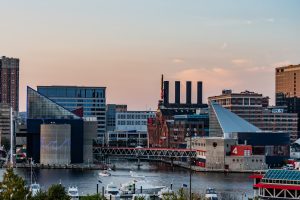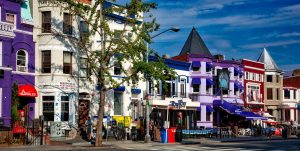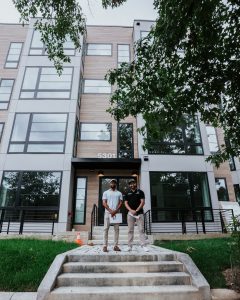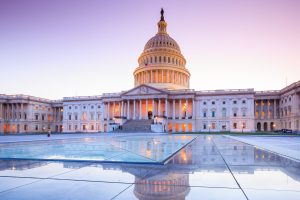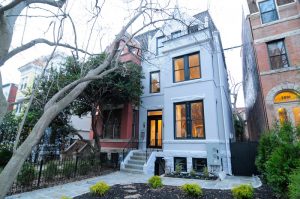Washington, D.C. isn’t all protests and politics. It has a charm all its own. D.C. is comprised of suburbs and city life condensed in one 68-square-mile metropolis.
And while it contains just about every type of cuisine, ethnicity, and style of home, all its qualities still might not be for everyone.
If you plan on moving to DC, you should be aware of both its benefits and challenges, from its extensive array of activity to being one of the most expensive cities in the country.
Find out if DC is right for you by reading these details about the nation’s capital.
Do You Like People?
One thing is for sure, living in DC won’t be lonely. Its residents add up to over 700,000, but that doesn’t include the several hundred thousand commuters from Maryland and Virginia or the 22 million tourists it sees a year.
While this dense population makes unbelievable traffic in a tight space it also gives DC a small-town feeling. This creates many opportunities to socialize and make friends.
So, if you like people, then DC is a place for you.
Variety of Neighborhoods
Similar to New Your City, living in Washington DC offers several types of neighborhoods all with their own unique identity. The area that one would be most at home can be influenced by a number of variables, including if they have a family, newly married or single. In fact, we recently wrote an article on the best locations for families in Washington, DC.
The DC-area contains about 21 different communities separated into three regions divided up by Rock Creek Park and the Anacostia River. Each section has its own price range of single homes, townhouses, and apartments/condos.
You can choose to have more space on the outskirts of the center of the city or decide you want to stay in a high-rise downtown.
Surrounded by Nature
The goods news is that life in Washington DC, no matter where you live, doesn’t sacrifice beautiful scenery. Nearly 100% of residents can take a 10-minute walk to a nearby park which contributes to 21% of the land in DC.
So even though you live in a densely populated area, the city manages to incorporate nature into your life.
Get Where You Need to Go
The rush hour seems to never end in DC and public transportation has its faults occasionally, but this shouldn’t affect residents as much as commuters and tourists. That is because it is easy to walk most places.
If you live in the suburbs, your favorite restaurant or grocery store is just a short distance away. In the city, everything is right outside your door.
And even if you have to take public transportation to travel further, DC has one of the most intricate metro systems with stops throughout the region. It also has a fair share of taxi apps and rideshares as well as rentable bikes and scooters.
Budgeting High-income vs. High Cost of Living
You don’t have to be a politician to work in DC. Jobs in other areas such as education, nonprofits, and international trades are plentiful. The city also holds the highest median income in the country.
While the pay is high so is the cost of houses and basic living expenses. Be sure to weigh your salary against the cost of a new house or monthly rent.
Also, when considering where to live in DC, take into account that daily essentials will be more expensive than your current city.
Never Be Bored Again
The best part about moving to Washington DC is the entertainment. You have the nation’s capital at your fingertips. The town is ripe with family-friendly activities, from museums and monuments to art and theater.
It is also home to the national zoo that offers acres of free wildlife exploration.
For adults, there is an abundance of nightlife like the famous 9:30 club and bars that keep you out all night.
Plus, you can venture outside DC to check out the beaches and mountains of Maryland and Virginia that are just a short drive away.
Satisfy Your Taste Buds
There is also entertainment for your taste buds with some of the most cultural and classy restaurants that showcase local delicacies and cuisines from around the world.
Then there are the hundreds of local food trucks that wander the town. It would take you years to taste all that DC has to offer.
No Vote in Congress
As a DC resident, you would choose a representative for the House of Representatives in Congress, but they wouldn’t be allowed to vote. That means local laws aren’t controlled by the people of DC rather the rest of Congress.
This occurs because DC is not technically a state but a district. Luckily, you still get to elect local officials like the mayor. But, if you are political, then losing your federal representation might be a deal-breaker.
Seasonal Pros and Cons
If you are new to the northeast then you should be aware of its extreme four seasons. In DC, the summers are hot and humid and the winters are brisk. And though it does snow often, snow removal isn’t very efficient.
The good news is that spring and fall are both pleasant and beautiful. DC is covered in trees that highlight these seasons. The cherry blossoms attract people from the surrounding region just to gaze at their bloom.
How to Start Moving to DC?
If you think moving to DC is right for you, the first thing you want to consider is your budget. Does your income cover the cost of a new mortgage and the cost of living? Consider the type of area and housing you can afford before moving.
Then, check out our buyer’s guide to get started on purchasing your home in the capital.
Have questions? ONE Street is here to help. Schedule a free consultation and we’ll help answer any and all of your questions.

